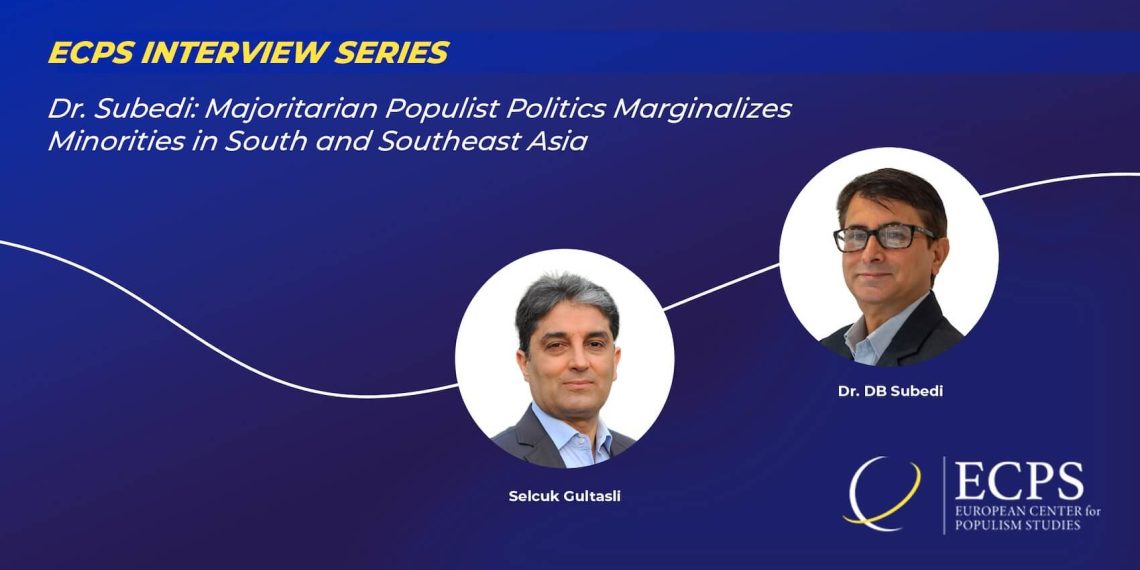Dr. DB Subedi highlights how majoritarian populist politics in South and Southeast Asia marginalizes minorities by leveraging identity politics and ethno-religious narratives. He underscores how populist leaders, from Myanmar to India, utilize state apparatuses to consolidate power, often legitimizing exclusionary policies and fostering polarization. With examples like Hindu nationalism in India, Buddhist nationalism in Myanmar, and Islamist populism in Bangladesh, Dr. Subedi examines how these movements exploit historical grievances and global populist trends while adapting them to local contexts. His analysis sheds light on the fragile state of pluralism and democracy in these multicultural societies.
Interview by Selcuk Gultasli
Dr. DB Subedi, a distinguished lecturer in Peace and Conflict Studies at the University of Queensland, Australia, delves deeply into the dynamics of majoritarian populist politics in South and Southeast Asia in an insightful interview with the European Center for Populism Studies (ECPS). Drawing from his extensive academic expertise, Dr. Subedi examines how populist leaders in the region leverage identity politics and state apparatuses to marginalize minorities and consolidate power, often at the expense of democratic institutions and pluralism.
In the interview, Dr. Subedi sheds light on how the historical, cultural, and political landscapes of post-colonial South and Southeast Asia have created fertile ground for nationalist and religious populist ideologies. He highlights the role of religion, ethnicity, and national identity in shaping these populist movements, often leading to the exclusion of minorities and the reinforcement of majoritarian dominance. The cases of India, Myanmar, Sri Lanka, and Bangladesh serve as pivotal examples, with each showcasing how populism adapts to local contexts while drawing on broader global populist trends.
Dr. Subedi also explores the economic underpinnings of populism in the region, emphasizing the interplay between economic inequality, globalization, and populist rhetoric. He points out that while globalization has lifted millions out of poverty in Asia, it has simultaneously deepened economic divides, creating grievances that populist leaders exploit to craft exclusionary narratives.
Furthermore, the discussion extends to the intersection of nationalism and populism, where Dr. Subedi identifies the trend of leader-centric politics replacing traditional party-led systems. This shift has enabled authoritarian populist leaders to manipulate institutions, bypass democratic norms, and entrench their authority. The examples of Narendra Modi in India, Rodrigo Duterte in the Philippines, and the Rajapaksa brothers in Sri Lanka illustrate how such leaders use religion and identity to legitimize their power while marginalizing dissenting voices and minority groups.
The interview provides a comprehensive understanding of how majoritarian populist politics operates in South and Southeast Asia, offering valuable insights into its implications for democracy, social cohesion, and the region’s broader political landscape. Dr. Subedi’s analysis serves as a critical lens through which to examine the challenges posed by populism in multicultural societies.


